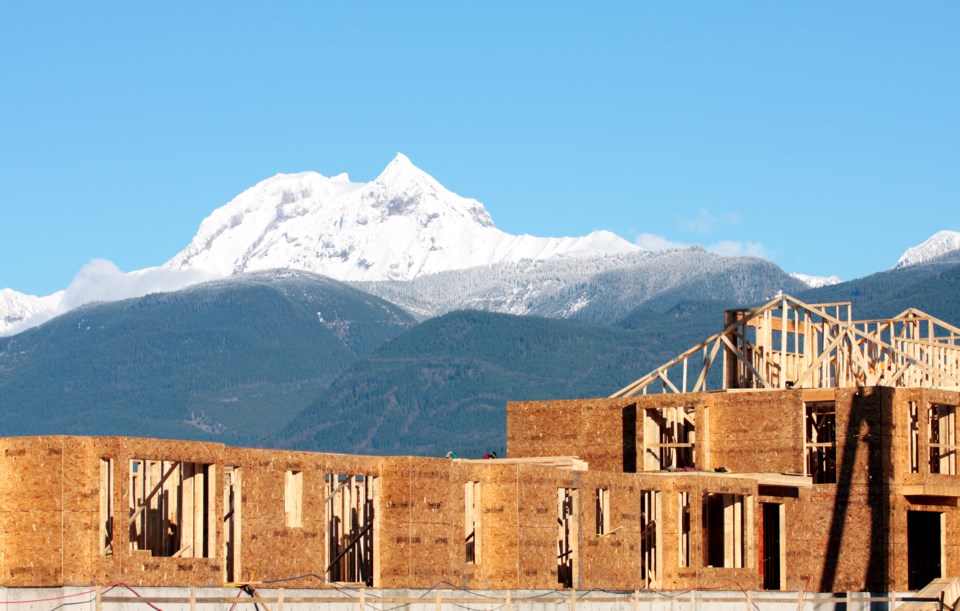Higher permitting fees at Whistler’s municipal hall won’t be so hard to swallow if they lead to better service and shorter wait times, according to builders in the resort.
On Jan. 10, Whistler’s mayor and council approved amendments to the Resort Municipality of Whistler’s (RMOW) Land Use and Procedures Bylaw that increase fees for things like development applications, development variance permits and temporary use permits.
The new fee structure also aims to improve transparency and consider the staff time required in all departments rather than just the building and planning departments, according to the RMOW.
The municipality has not raised the fees for a decade, and the amended bylaw aims to bring the costs in line with current expenses. The updated bylaw is Part 2 of an ongoing initiative by the RMOW to reduce red tape, improve wait times and get cost recovery in line with staff costs so that taxpayers are not subsidizing permits.
The new invoice structure will also result in marginal permitting time savings for the municipality. However, the primary purpose of the increased fees is to better account for the total staff time required for the review and processing of each application.
According to the RMOW, the Local Government Act requires that fees related to applications and inspections not exceed the estimated average costs of processing, inspection, advertising and administration associated with the applications.
The amended bylaw will also help improve certainty on how much a permit will cost applicants and improve cost recovery for the RMOW.
What are builders saying?
The increased fees have resulted in some mixed opinions from local builders, though the general feeling is most are on board with paying more if processes speed up.
Bob Deeks, owner of RDC Fine Homes, believes that if the increased fees help reduce permitting wait times, he is OK with paying the extra money, as past permitting delays have resulted in significant project cost increases.
“Essentially, what the bylaws are doing is charging more money for development permits, covenant modifications, and temporary use permits, and hoping to streamline this so it gives them more money for either better staff or more staff, from what I can gather,” Deeks said.
“So in the end, if the process improves, then even though the fees have gone up, in the long run, it saves everybody money because it brings more certainty to the process.”
Deeks added that he hopes the changes bring more certainty for development permits in particular, “because development permits were at 10 months last year, which is a huge hurdle in terms of just trying to get things moving if you have a project that you’re trying to develop,” he said.
Former Sea to Sky Home Builders Association president and owner of Ario Construction, Chris Addario, shares Deeks’ view, and generally favours fee increases if services also increase.
“If the fees are gonna go up, we want to see an increase in services, and I think that’s across the board. People just want value for their money, and I think that’s fair,” Addario said.
“I think there’s an expectation that if you’re going to [raise fees], you have to increase your services, because currently, the reality is that the municipality has been struggling with turning permits around quickly, development permits and building permits.”
Under the new bylaw, temporary use permit applications rose from a baseline fee of $240 (plus staff time, legal services, and advertising) to a $3,000 flat fee if delegated and $4,700 if they require council permission to proceed.
Meanwhile, amendments to zoning bylaws or land use contracts will go from a base fee of $1,500-plus to one of two massive base fees: $15,000 for applications related to density changes below 465 square metres and $30,000 for density changes above that threshold.
Wait times for permit reviews starting to decrease
Developer Rod Nadeau, founder of Innovation Building Group, said he wants to see the RMOW decrease wait times for minor permit applications like renovations and house permits.
“This only seems to try and justify very large fee increases and make the RMOW accounting process easier for them,” Nadeau said in an emailed statement.
“I would prefer to see a maximum wait time of three days for a minor renovation permit and three weeks for a house permit. That would be more in keeping with providing better service as opposed to simply charging more for an inefficient system.”
As a result of the 2021 cyber attack, the pandemic, staffing shortages, and a surge in permitting applications, a perfect storm created a significant lag in permit approval times at the RMOW.
At its peak in August 2021, more than 230 building and 52 development permit applications were in the queue, resulting in dozens of delayed projects. Add in rapidly rising inflation, and construction costs on many projects skyrocketed. Since then, Whistler’s permitting approval time has improved considerably.
In early October, the RMOW adopted new permitting processes made possible by provincial legislative changes. Some permits, such as development variance permits, are now delegated to staff and no longer require presentations to council.
Throughout 2022, the municipality processed 341 building permit applications and approved 281 permits (as of Dec. 8).
The current initial review for building permits as of Jan. 8 is six months for multi-family/commercial developments, four months for single-family and duplexes, and one month for stand-alone plumbing applications.




